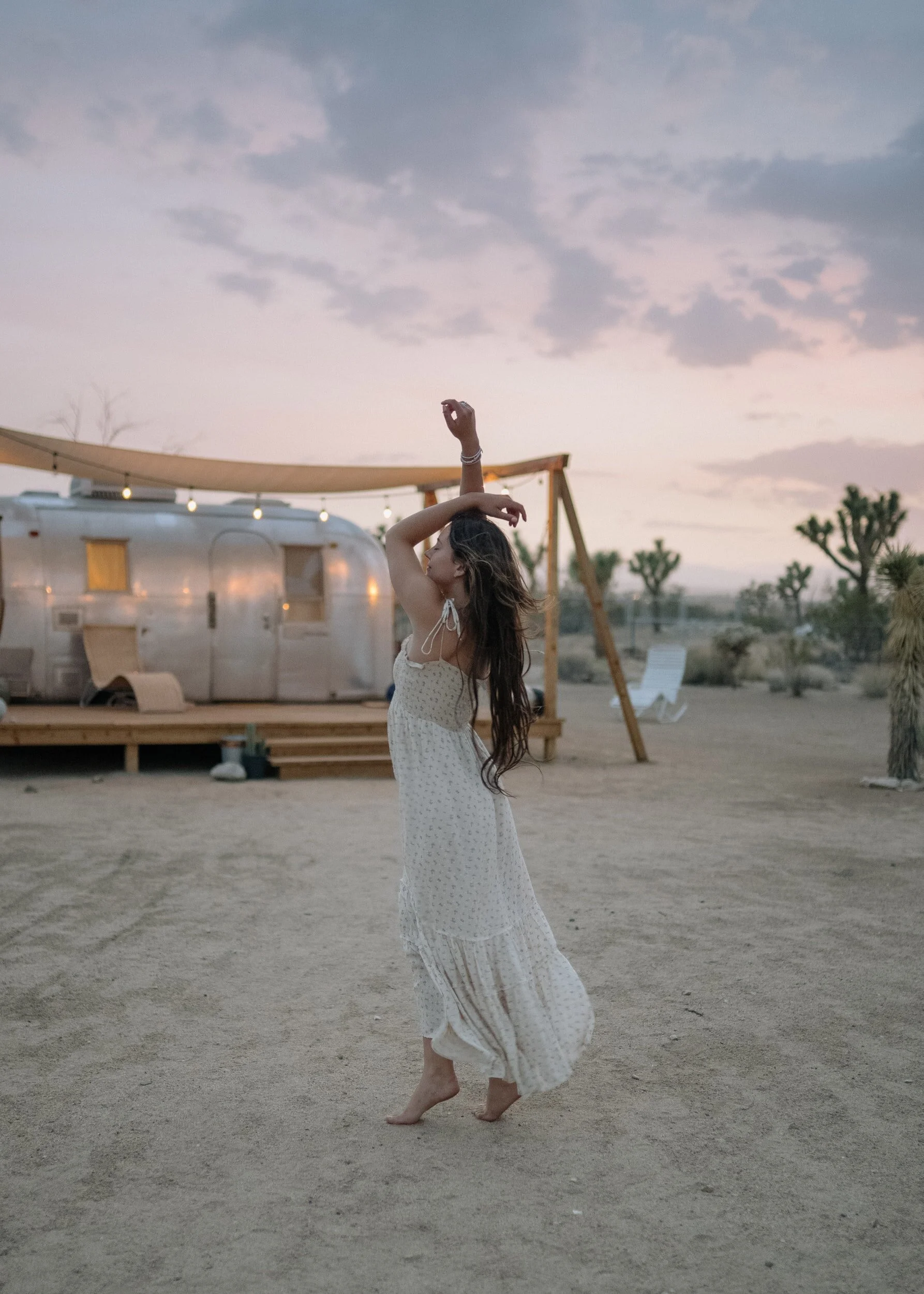Using Mindfulness To Support Flow States.
Mindfulness and Flow States
How to use mindfulness to support flow states.
Firstly I think it's important to define what 'flow' is.
Positive psychology often refers to flow as "being in the zone" whilst others refer to being in flow as being in a state where you are in touch with a feeling of bliss. Either way we know that flow states cause a boost in our happiness.
According to positive psychologist Mihály Csíkszentmihályi, what you are experiencing when you are in flow, is a state of complete immersion in an activity. He states that a flow state can be entered while performing any activity, although it is most likely to occur when you are genuinely engaged in performing a task or activity for motivatio nal purposes.
So whether it's cooking a delicious meal in the kitchen, dancing to music, getting lost in books, weaving flower crowns or painting - we all have the ability to experience the pleasure that comes with being in flow. Being in flow is a positive experience, it is known to produce strong positive feelings of enjoyment leading to more positive affect & happiness over time.
Can mindfulness support us in being in flow?
As mentioned above, if there is an activity something we genuinely enjoy or feel a passion for, it's more likely we can move into flow. However, honing our skills of mindfulness can support us moving into and staying in flow in our day to day activities.
A practice of mindfulness supports us in being able to focus our attention more easily.
Mindfulness helps us to train our minds to be in the here and now. With mindfulness we can recognise if we get distracted and we can bring our attention back to the task at hand when our mind wanders. This type of focused attention is an essential ingredient when it comes to being in flow as we need to be able to hold our attention to create a flow state.
When we practice mindfulness we are also observing our thoughts, not getting caught up in the meaning of thoughts or reacting to them, this means that we gain greater personal control over out thoughts and feelings. Mindfulness allows us to simply be and enjoy each moment, which in turn can help us move into flow states. When we rushing through and doing a task for the sake of it or without mindful appreciation we are less likely to enter into a state of flow.
A few key points when it comes to creating flow states:
You want to be able to give 100% attention to the task at hand, distractions will only serve to break the flow. Phone off, TV off and find a space where you can focus are musts.
Set aside sufficient time: It's not going to happen in 5 minutes, allow yourself a good half an hour to get in flow and some extra time in the day to make the most of it.
Check-in with how your feelings: If your feeling anxious, worried or stressed, chances are you're not going to get into the flow. Energy levels should also be high, change your state and energy by doing something active, listening to a motivating talk or calling a friend for inspiration.
How do you know when you're in flow?
A few key signs:
You feel Happy! Joyful, ecstatic even...
You have a clear goal, that feels challenging & attainable
You could spend hours doing the task at hand - It's positive & energizing
You get lost in the moment - because you're completely focused on what you are doing
Being in flow not only makes activities more enjoyable, but researchers have also found it can lead to increased performance and lead to further learning and skill development.
The act of achieving flow shows a strong mastery of a certain skill, this means t hat seeking new challenges and information in order to maintain a state of flow is needed.
For those who might not know where to start when finding their flow, you could try a creative class, or challenge yourself to learn a new skill. There are usually many options you can find in your local community & you just might find a new passion!
I hope you have found this blog useful, if you are looking to work on mindfulness or developing skills to support your personal growth and development please reach out and book a session here.
Natajsa is a Clinical Psychotherapist with a private practice is based in Ashgrove, Brisbane. She provides psychotherapy and counselling to individuals and couples and facilitates fortnightly group therapy focused on interpersonal process. Natajsa believe's that the relationship we have with ourselves and others is the essential ingredient to our emotional health, happiness and wellbeing.
As a Gestalt therapist she is interested in the topics of connection, belonging and the importance of human relationships. Her focus is on helping people develop self-awareness and understanding of their challenges, so they can create long-term, sustainable change that leads to more fulfilling and meaningful lives. Natajsa has been featured as an expert both locally and internationally and has contributed to a number of print and online media outlets including Women's Health and Fitness Magazine, Cosmopolitan Magazine, The Courier Mail & ABC Online.You can find her:
www.natajsawagner.com
www.facebook.com/NatajsaWagnerPsychotherapy

